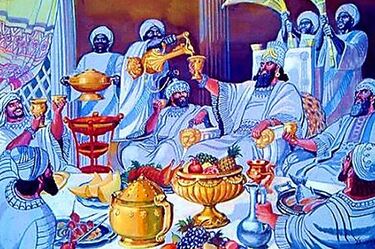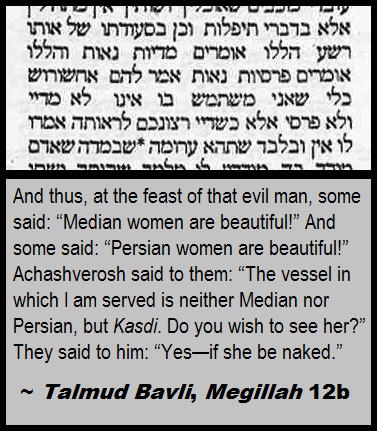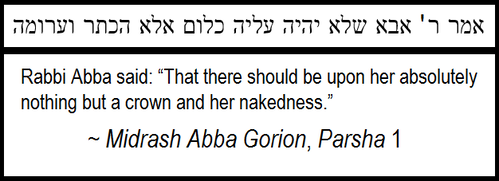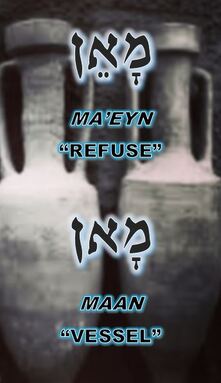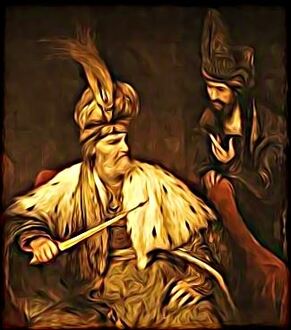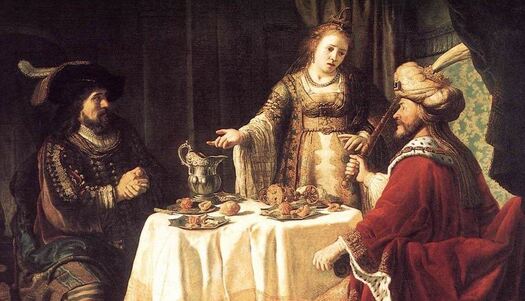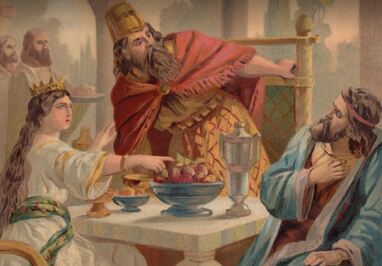ESTHER UNVEILED
by Jeremy Chance Springfield
2/4/2021
Esther’s plight in the book of her namesake is one of utter precariousness.
Of all the women Scripture presented in difficult situations, the hidden queen of Purim was seemingly set into a truly impossible scenario.
Of all the women Scripture presented in difficult situations, the hidden queen of Purim was seemingly set into a truly impossible scenario.
From birth a daughter of the subjugated Hebrew people living now as foreigners in the land of Babylon, then orphaned unexpectedly and saved only by the kindness of her father’s kin, Mordechai, the young woman named Hadassah by her parents soon found her insignificant life exalted to the role of the most important woman in that Gentile kingdom. Through the capricious whims of the Persian king Ahasuerus, she was soon crowned queen, and with such royal prominence came the terrifying predicament instigated by Haman’s ancestral hatred that would test her loyalty not only to her own lowly people, but also to the faith which she had kept a hushed secret for so long.
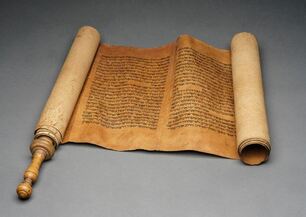
This study examines the account of Purim by focusing on the events leading to Esther’s curious actions before Ahasuerus in an effort to illuminate why she crafted her request to have a self-sacrificing personal audience with the King in the way that she did—an act which ultimately led to the preservation of her people in the midst of an exile filled with animosity and anti-Semitism.
To appreciate the events in proper context, let us turn first to the situation that led to Esther’s rise to the throne as Queen of Persia. The book opens with King Ahasuerus holding a banquet for his most honored of provincial officials. Spanning half a year, the grandiose royal gustatory event saw its climax in a week-long wine feast, as Esther 1:7-8 describes the lush decadence of the vessels and the excess imbibing of the royal vintage.
To appreciate the events in proper context, let us turn first to the situation that led to Esther’s rise to the throne as Queen of Persia. The book opens with King Ahasuerus holding a banquet for his most honored of provincial officials. Spanning half a year, the grandiose royal gustatory event saw its climax in a week-long wine feast, as Esther 1:7-8 describes the lush decadence of the vessels and the excess imbibing of the royal vintage.
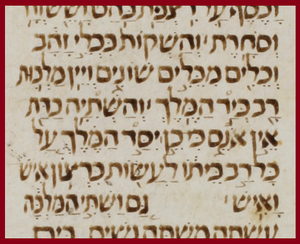
7 And they drank with vessels of gold—and the vessels were different vessels [each]—and abundant royal wine, as according [to] the king.
8 And the drinking was according [to] decree: none was compelled, for thus had established the king concerning all the officials of his house: that they do according [to] the desire of each and [every] man.
8 And the drinking was according [to] decree: none was compelled, for thus had established the king concerning all the officials of his house: that they do according [to] the desire of each and [every] man.
The unrestrained spirit of the festivities culminated in the call to bring forth the Queen herself--Vashti!
Yet, her summons was met with an unexpected response, as we see recorded in Esther 1:10-12.
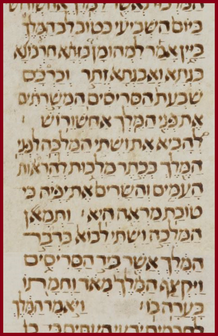
10 On the seventh day, as the heart of the king was glad with wine, he said to Mehuman, Biztha, Charvona, Bigtha, and Avagtha, Zeythar, and Karkas—the seven eunuchs who served before the King, Achashverosh--
11 to bring Vashti the queen before the king with the royal crown, to show the peoples and the princes her beauty, for she was good to gaze upon.
12 And the queen—Vashti—refused to come at the word of the king, which was [given] by the hand of the eunuchs. And the king was very indignant, and anger burned within him.
11 to bring Vashti the queen before the king with the royal crown, to show the peoples and the princes her beauty, for she was good to gaze upon.
12 And the queen—Vashti—refused to come at the word of the king, which was [given] by the hand of the eunuchs. And the king was very indignant, and anger burned within him.
Queen Vashti’s refusal comes with no explanation in the official canonical text of Esther. The reader is left to ponder the reason she responded in such a surprising way to the king’s simplistic request. The traditional Jewish interpretation, as preserved in the Talmud, tractate Megillah, provides an important insight that will factor into Esther’s actions taken later in the book.

In a not so surprising turn of events, the traditional explanation for Vashti's unexpected refusal is ultimately grounded in the fact that the drunken officials end up comparing the physical traits of the women of the kingdom, only to have their piggish assertions invaded by Ahasuerus’ own boisterous claim. The Talmudic text tells us he speaks of his queen in incredibly disrespectful color—she is nothing but a “vessel” to him, a flashy “souvenir” of the grand kingdom that Media-Persia overthrew—as he calls her a Kasdi—the ancient terminology for a Chaldean / Babylonian.
Their bold reply to the king’s claim showcases the level of unruliness to which the royal festivities had descended: perceiving Ahasuerus’ brash portrayal of Vashti, the officials request he prove his insinuation of her physical superiority by summoning her to appear while entirely unveiled from her clothing!
Their bold reply to the king’s claim showcases the level of unruliness to which the royal festivities had descended: perceiving Ahasuerus’ brash portrayal of Vashti, the officials request he prove his insinuation of her physical superiority by summoning her to appear while entirely unveiled from her clothing!
In fact, the Midrash Abba Gorion goes on to explain the mention of Ahasuerus’ order for her to appear specifically with “the crown.”
In this explanation, the Midrash Abba Gorion interprets the details of Esther 1:11 as scantily as possible—the mention of appearing "with her crown" only is taken at face value: it was understood from this she was summoned to appear wearing only that symbol of royalty to unquestionably distinguish her from the rest of the women in the kingdom!
When these ancient Jewish details of the situation are considered, an excellent reason for Vashti’s refusal to accept the royal summons is uncovered. While the traditional interpretation of the events leading up to Vashti’s summons and her subsequent refusal may seem odd, it is somewhat supported in the actual Hebrew text of 1:12, where the term MA’EYN “refuse” was used. The term has a shared Babylonian spelling of MAAN, meaning “vessel.”
The wording of the Hebrew text hints that her response of “refusing” was based on her being treated with no more value than the “vessels” from which they were so wantonly drinking. The Talmudic and Midrashic tradition thus seems to have picked up on that clue in the text and paired it with the Babylonian background of Vashti and the “vessels” of the king’s wine feast, resulting in the conclusion of her being objectified, and in this lay her otherwise unthinkable reason to reject the king’s decree.
Unwilling to unveil herself before the cadre of intoxicated officials, she soon found her flouting of the king’s request to have set her on a path of no return, as Esther 1:19-20 explains.
Unwilling to unveil herself before the cadre of intoxicated officials, she soon found her flouting of the king’s request to have set her on a path of no return, as Esther 1:19-20 explains.
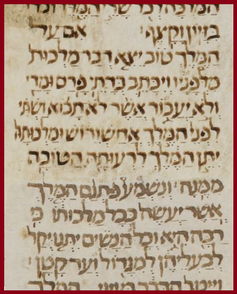
19 If it is good concerning the king, let a royal decree go forth from him, and let it be written in the laws of Persians and Medes, that it not be altered, that Vashti shall not come before the king Achashverosh, and her queenship be given [by] the king to a female who is better than she.
20 And when shall be heard the word of the king, which shall be made in all his kingdom—for it is great—then all the wives shall give honor to their husbands, to great and unto small.
20 And when shall be heard the word of the king, which shall be made in all his kingdom—for it is great—then all the wives shall give honor to their husbands, to great and unto small.

A king’s command is not to be safely ignored, and so Vashti’s declination before the ears of all the royal officials was scandal most supreme. The queen had not only dared to refuse the king, she brazenly dismissed his directive while he sat in the presence of the most important administrators in his kingdom! To bear such an insulting blow—and that in the midst of a moment of boasting and treating her as if she were like the other vessels in which he so wantonly expressed his authority and gluttonous desire—would be an affront to all of Ahasuerus’ misplaced sensibilities, in whatever sober or inebriated form they may have taken. This mortifying moment could only be rectified through a consequence as complete and embarrassing as the obstinate response she had sent to his summons.
A judgment cast without semblance of mercy; Vashti was banished forever from entering the presence of the king. Her precise fate eludes us. Was she relegated to the nameless ranks of the king’s harem? A Babylonian royalty who tasted queendom only to be demoted to a concubine destined never to see the face of her king—stripped not only of her authority but also the very purpose of a royal courtesan? Or perhaps ostracization from Ahasuerus was an idiomatic expression for a much darker end? Did the order of her expulsion actually speak of something so morbid as a death sentence? Was Vashti’s very life vanquished as punishment for slighting the king in front of his drunken company of guests?
A judgment cast without semblance of mercy; Vashti was banished forever from entering the presence of the king. Her precise fate eludes us. Was she relegated to the nameless ranks of the king’s harem? A Babylonian royalty who tasted queendom only to be demoted to a concubine destined never to see the face of her king—stripped not only of her authority but also the very purpose of a royal courtesan? Or perhaps ostracization from Ahasuerus was an idiomatic expression for a much darker end? Did the order of her expulsion actually speak of something so morbid as a death sentence? Was Vashti’s very life vanquished as punishment for slighting the king in front of his drunken company of guests?
Whatever expression her doom took, it was final: no more would Vashti wear the crown as Queen of Persia.
In a later point of the book, we are told that a law was enacted which prevented anyone who had not been royally summoned from making an appearance before King Ahasuerus without the immediate danger of execution hanging over their heads--unless his mercy be extended to them to save their life, as we see expressed in Esther 4:11.
In a later point of the book, we are told that a law was enacted which prevented anyone who had not been royally summoned from making an appearance before King Ahasuerus without the immediate danger of execution hanging over their heads--unless his mercy be extended to them to save their life, as we see expressed in Esther 4:11.

… whomever of any man or woman, who comes unto the king, unto the inner court, who is not summoned, has one law: to die – except to whom the king shall extend the golden scepter, and he shall live. Yet, I have not been summoned to come unto the king these [last] thirty days!
This severe law would affect how the new queen would interact with the king. Since Vashti felt she had authority to decline the command to appear before the king, the law ensured that no future queen would feel so readily authoritative as to seek or reject his audience at her own impulse. Instead, the incoming queen would need to consider the weight of her desire to have his attention and proceed as she felt was in her best interest.
A replacement queen nevertheless needed to be crowned, and so the Jewess Hadassah, veiled under the Persian mask of Esther, was taken along with other women and prepared as prospective mates for Ahasuerus. She ascended through the blur of potential partners, and in time took her seat in Media-Persia next to the king as his new bride, the details of which are recorded in Esther 2:17 & 20.
A replacement queen nevertheless needed to be crowned, and so the Jewess Hadassah, veiled under the Persian mask of Esther, was taken along with other women and prepared as prospective mates for Ahasuerus. She ascended through the blur of potential partners, and in time took her seat in Media-Persia next to the king as his new bride, the details of which are recorded in Esther 2:17 & 20.
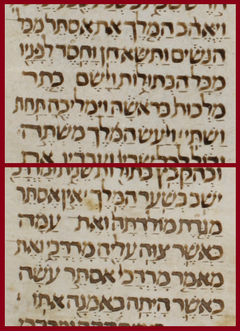
17 And the king loved Esther more than all the women, and she carried grace and favor before him more than all the virgins. And he sat [the] royal crown on her head, and coronated her instead of Vashti.
…
20 Esther had not manifested her kin or her people, as that Mordechai had commanded concerning her. And the saying of Mordechai Esther did, as that she had when he had trained her.
Esther’s ascension to the throne seemed like a blessing in disguise: in a place of true power where her true identity was obscured under a royal Persian veneer, she could influence the kingdom for safe treatment of her subjugated kinsmen--or so it would have seemed.
Haman unexpectedly enters the account in Esther 3:1-2, and he is similarly exalted to a status by the king that is nigh equal to Ahasuerus. With that lofty position came the requirement for the citizens of the kingdom to pay idolatrous homage to Haman—an act forbidden in the Torah to be performed by any true believer in the Creator of heaven and earth—and so Mordechai was shown to have engaged in willful noncompliance to such abominable behavior—but with a cost!
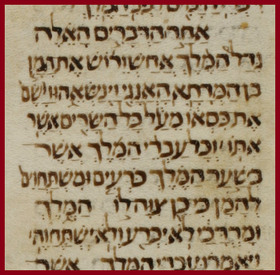
1 After these matters, the king Achashverosh exalted Haman, son of Hammedatha, the Agagi, and raised him up, and set his throne above all the princes who were with him.
2 And all the servants of the king who were in the gate of the king bowed, and made reverence to Haman, for thus had the king commanded of him. And Mordechai did not bow, and neither revered him.
2 And all the servants of the king who were in the gate of the king bowed, and made reverence to Haman, for thus had the king commanded of him. And Mordechai did not bow, and neither revered him.
This bold defiance of the royal decree concerning Haman held in it an unforeseen consequence. This act of disobedience ignited Haman’s wrath against Mordechai, and once informed of the race of his enemy’s kinsmen scattered throughout the kingdom—it was further enflamed against them all. The matter grew from the need to deal with just one incident of insurrection to Haman’s plot that would put an end to a people whose ancestors had nearly annihilated his own ancestry in the days of Israel’s first king, Saul. This was not the seeking of justice but rather the long-inculcated lust for racial revenge!
In Esther 3:8-11, we see Haman’s scheme to annihilate not only Mordechai, but all the Jewish populace of Persia!
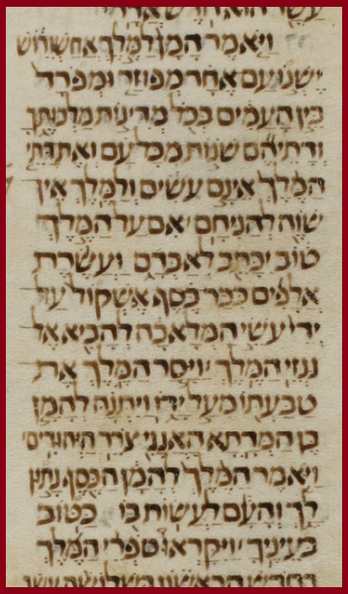
8 And Haman said to king Achashverosh: “There exist one people scattered and dispersed among the peoples in all the cities of your kingdom, and their laws differ from all the people, and the laws of the king they do not perform, and for the king it is not fitting to tolerate them.
9 If it is good concerning the king, let it be written for them to perish. And I shall pay ten thousand talents of silver to the hands performing the work, to bring it unto the treasuries of the king.”
10 And the king removed his ring from upon his hand, and gave it to Haman, son of Hammedatha, the Agagi, adversary of the Yehudim.
11 And the king said to Haman, “The silver is given to you—and the people—to perform with it as is good in your eyes.”
9 If it is good concerning the king, let it be written for them to perish. And I shall pay ten thousand talents of silver to the hands performing the work, to bring it unto the treasuries of the king.”
10 And the king removed his ring from upon his hand, and gave it to Haman, son of Hammedatha, the Agagi, adversary of the Yehudim.
11 And the king said to Haman, “The silver is given to you—and the people—to perform with it as is good in your eyes.”
Upon learning of the heinous intent in store for the Jewish exiles, Mordechai sought the aide of Esther in her unique proximity to the throne, beseeching of her a great sacrifice in attempt to save all of her kinsmen in the kingdom. His assertion and her subsequent reply speak volumes to us in Esther 4:13-16.
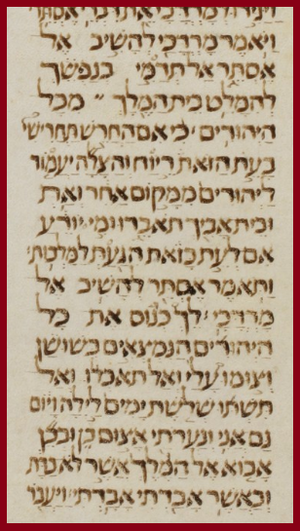
13 Then Mordechai said to respond to Esther: “Do not think in your soul to escape [in] the House of the King more than all the Yehudim!
14 For if you are certainly silent at this time, respite and salvation shall rise for the Yehudim from another place, and the house of your father shall be lost. And who knows if for a time as this you have come to the kingdom?”
15 And Esther told them to return unto Mordechai [this]:
16 "Go, gather all the Yehudim who are present in Shushan, and they must fast concerning me, and they shall not eat, and they shall not drink three days – night and day! Even I and my maidens shall fast so. And in such I shall go unto the king, which is not as customary, and if I shall be lost, I shall be lost.”
14 For if you are certainly silent at this time, respite and salvation shall rise for the Yehudim from another place, and the house of your father shall be lost. And who knows if for a time as this you have come to the kingdom?”
15 And Esther told them to return unto Mordechai [this]:
16 "Go, gather all the Yehudim who are present in Shushan, and they must fast concerning me, and they shall not eat, and they shall not drink three days – night and day! Even I and my maidens shall fast so. And in such I shall go unto the king, which is not as customary, and if I shall be lost, I shall be lost.”
The decision she made to unlawfully appear before Ahasuerus had to be carefully crafted. How would she make such a delicate approach to the throne? Would she hedge her bets on the favor he had previously shown and in so doing seek salvation for her kinsmen as well as herself? Or would she gamble everything on the most tenuous of threads in order to trust the One who was seemingly moving behind the scenes?

Esther knew she was in an unnatural position: a daughter of conquered and enslaved foreigners, she had yet somehow eluded detection as a Jew in a Gentile land, and in her seemingly flawless camouflage had ascended to the heights of the kingdom to sit as queen in a seat she had no business occupying. Reflecting on Mordechai’s convicting admonishment must have set things in a focus of sobering contemplation: she was here for a purpose not of her own choosing, on merits not of her own standing, and in this position held the potential to save all her countrymen whose fate teetered upon the whim of a madman whose logic relied on the roll of dice for whether they should live or die.
It was an insane situation.
An impossible setting, and yet there Esther was.
How should she react?
What should be her next move?
Any miscalculation could mean death.
Therefore, by likely looking back at the odd events that transpired to raise her up to the throne, Esther began a gambit that would set up the pieces in as similar a situation as her predecessor, and in so doing, although placing her in the most extreme of circumstances, would yet also place her in a position where she would see if the hidden favor of her Hebrew Deity was truly at work in the unbelievable events happening around her.
An impossible setting, and yet there Esther was.
How should she react?
What should be her next move?
Any miscalculation could mean death.
Therefore, by likely looking back at the odd events that transpired to raise her up to the throne, Esther began a gambit that would set up the pieces in as similar a situation as her predecessor, and in so doing, although placing her in the most extreme of circumstances, would yet also place her in a position where she would see if the hidden favor of her Hebrew Deity was truly at work in the unbelievable events happening around her.
As Ahasuerus had ordered a feast of wine before the vanquishing of Vashti, so too did Esther order the same for two subsequent days, as found in Esther 5:6 (and 7:2).
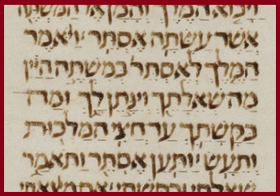
And the king said to Esther at the banquet of wine: “What is your request? And it shall be given to you. And what is your petition? Unto half the kingdom—and it shall be done!”
Just as the initial banquet described in the book involved a wine feast, so would Esther engage in such an excess with Ahasuerus. And just as the banquet was populated with the most prominent of royal officials, so would hers be attended by the most exalted of the king’s attendants—Haman—the very one who sought the death of her people!
In all of this she seemingly attempted to mirror the situation that led to the banishment of Vashti, for she knew she was no better than the former queen—herself a foreigner whose own origins were still yet concealed from the king. She thus leveled the playing field and asked for no honor not given to her predecessor, and that is why, as her final ploy, she revealed the truth of her situation in Esther 7:1-3!
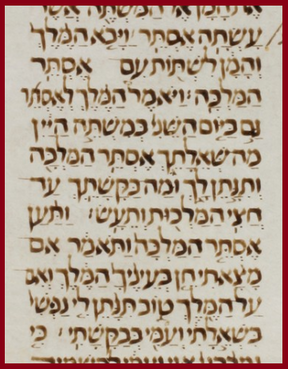
1 And the king and Haman came to drink with Esther the queen.
2 And the king said to Esther even on the second day at the banquet of the wine: “What is your request, Esther the queen? And it shall be given to you. And what is your petition? Unto half the kingdom, and it shall be done!”
3 And Esther the queen replied, and said, “If I have found grace in your eyes—O king—and if concerning the king it is good, let my life be given me with my request, and my people with my petition!”
2 And the king said to Esther even on the second day at the banquet of the wine: “What is your request, Esther the queen? And it shall be given to you. And what is your petition? Unto half the kingdom, and it shall be done!”
3 And Esther the queen replied, and said, “If I have found grace in your eyes—O king—and if concerning the king it is good, let my life be given me with my request, and my people with my petition!”
Just as Vashti was a wife of foreign--Babylonian--stock, so too was Esther a Jewess—neither queen of Media-Persia truly represented the people over which she reigned! Thus, we see that Ahasuerus had wed into the same situation concerning which he had formerly divorced—a wife who was not of his own people, and who had purposes and intents that were exclusively for her own well-being!
Yet, the twist which Esther gave that Vashti had not lay in the fact that Esther laid bare her true nature before Ahasuerus. While Vashti refused to physically disclose herself in front of the most important men in the kingdom, Esther unveiled her real identity in the presence of the king and his most beloved of citizens—who happened to be the one who wished annihilation for all of her kinsmen! For so long she had looked at the world through two different lenses: as a Jewish woman and as a Persian queen. In that moment before Ahasuerus and Haman, those differing personas were united as one when she bared her true self in an even more dangerous position than Vashti had been commanded to perform!
Yet, the twist which Esther gave that Vashti had not lay in the fact that Esther laid bare her true nature before Ahasuerus. While Vashti refused to physically disclose herself in front of the most important men in the kingdom, Esther unveiled her real identity in the presence of the king and his most beloved of citizens—who happened to be the one who wished annihilation for all of her kinsmen! For so long she had looked at the world through two different lenses: as a Jewish woman and as a Persian queen. In that moment before Ahasuerus and Haman, those differing personas were united as one when she bared her true self in an even more dangerous position than Vashti had been commanded to perform!
Just when it mattered most, all intents were exposed, and all deceit was revealed: the revelation of her dual identity would either be her people’s salvation or include her in their destruction. She had to trust the One who had orchestrated these events in her life to have mercy at this most precarious of moments. Esther gambled with her own life in order to hopefully bring redemption to the entire Jewish race in that foreign land. Her willingness to strip bare her identity before Ahasuerus was a contrast to the unwillingness of Vashti to appear in similar vulnerable appearance before the king. By arranging events to parallel that wherein the former queen was vanquished before the presence of the king without mercy, she set herself in the same basic situation, and in so doing, relied not upon the whims of the king, but on the providence of the King of Kings of Kings to affect salvation for the Jewish people. She let the chips fall where they may in order to see the invisible hand of the Holy One at work in a world that seemed intent on destroying Israel. Although exiled in the kingdom of Media-Persia, by placing herself in an utter self-sacrificing position, Esther unveiled that the true work of faith was alive and well in the Kingdom of the Heavens!
All study contents Copyright Jeremy Chance Springfield, except for graphics and images, which are Copyright their respective creators.

